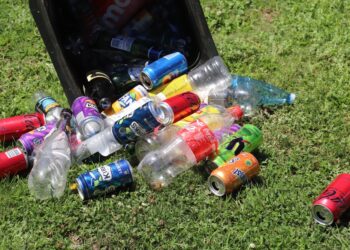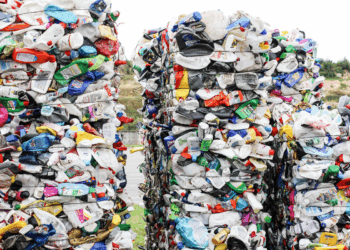The Illinois Senate has passed a resolution pushing the Basel Action Network and the e-Stewards Leadership Council to approve a petition from Kuusakoski Recycling that would allow the firm to store treated CRT glass at a landfill and count it as recycling.
The 8-page resolution, which can be viewed here, was authored by Sen. David Koehler, a Democrat, and Sen. Darin LaHood, a Republican.
Noting the “limited additional available outlets for the legitimate recycling of CRT glass” and “stockpiles of abandoned CRT glass … at several former electronic waste processing facilities across the U.S.,” the resolution offers support for the Kuusakoski process.
It states the following: “We urge the Basel Action Network and the e-Stewards Leadership Council to approve the pending petition submitted by Kuusakoski Recycling and Peoria Disposal Company to allow the placement of treated CRT glass into a dedicated retrievable storage cell in a permitted disposal facility.”
The resolution posits the cell idea, which calls for treated CRT glass to be stored in a cell until the day comes when someone can fully recycle it, “will provide needed environmentally protective, cost-effective and immediately available capacity for CRT glass, resulting in relief for residents, local governments and recyclers across the Illinois and the U.S.”
According to the Illinois General Assembly website, a resolution is typically passed to express the opinion of lawmakers, and it does not put any formal legislation into effect.
A formal petition from Kuusakoski asking e-Stewards to view storage of treated CRT glass as recycling is currently being discussed by a 33-member CRT working group. Thus far, four 2-hour meetings have been held and Jim Puckett, BAN’s executive director, expects a decision to be made in “several weeks.”
According to Puckett, the Illinois resolution won’t influence the deliberation process.
“The participants are aware of the Illinois Senate resolution, however, the group does not see that action as relevant to its deliberations which are underway to strictly judge the merits of the proposal with respect to fulfilling the global environmental and social mission of the e-Stewards Certification,” Puckett said in a statement.
Formal acceptance of the storage cell concept by e-Stewards could have industry implications. State regulators and e-scrap stakeholders often look to certification guidelines in determining what to allow under their e-scrap programs. With the CRT market exceedingly tight, an e-Stewards OK on storage could open the door to state officials allowing material destined for Kuusakoski to count toward collection quotas.
While the Illinois EPA has come out in support of Kuusakoski’s storage idea, state agencies elsewhere, including in Wisconsin, Connecticut and Minnesota, have stated they will not count the option toward recycling goals for manufacturers.
A March 2014 statement from e-Stewards, the certification body created by BAN, noted potential support for a “monitored, fully contained and protected retrievable storage in designated ‘disposal’ sites.” A Kuusakoski executive later told E-Scrap News the company developed the storage cell concept after hearing e-Stewards could be amenable to it.
According to Kuusakoski, glass stored in the cell will be recovered once a “viable” option emerges to take the glass.
Kuusakoski leaders have stated they believe future markets could open up, enabling the company to move the glass at no cost or even allow the firm to get paid for it. At present, no such options exist.
Another issue is the EPA’s “CRT rule,” which requires 75 percent of glass stored on a company’s site to be recycled in a calendar year. It is unclear how Kuusakoski’s storage approach would be interpreted under the federal management guideline.
Kuusakoski has been treating leaded CRT glass and using it as alternative daily cover (ADC) at a Peoria landfill operated by the Peoria Disposal Company, but that approach was viewed by e-Stewards as disposal and permitted only as a “last resort” for certified recycling firms. It was prohibited from use under the R2 certification.
Kuusakoski has said it will replace the ADC operation with the storage idea if it gains support from state legislators and/or e-Stewards.
The company’s CEO, Rich Hipp, could not be reached for comment.
The Illinois House of Representatives has the ability to pass a similar, or even identical, resolution regarding Kuusakoski’s storage method.





















